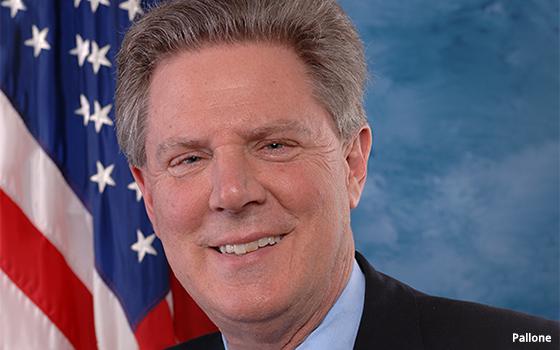
House Republicans are calling for the leaders of Google,
Facebook and Twitter to explain their content moderation decisions to Congress.
“We have serious concerns regarding the recent actions taken by these companies to censor speech on their
platforms, especially so close to a major presidential election,” 14 Republican lawmakers on the Energy and Commerce Committee said in a letter to chairman Rep. Frank Pallone (D-New Jersey).
They add there is “a strong record for the need to hear directly from the chief executives of Twitter, Google, and Facebook” by holding hearings on Section 230 of the Communications
Decency Act and online disinformation.
Section 230 immunizes online publishers from liability for speech by users, and also shields companies from lawsuits over content moderation decisions.
(Even without Section 230, companies have a First Amendment right to decide what type of speech to ban from its platform, but litigating a First Amendment issue can be more complicated for companies than defeating a lawsuit on Section 230 grounds.)
advertisement
advertisement
The letter comes several days
after Twitter and Facebook took steps to limit the spread of a disputed New York Post story based on a purported email to Hunter Biden, which was supposedly recovered from an abandoned
computer. The email, from an adviser to the Ukrainian company Burisma, supposedly said, "thank you for inviting me to DC and giving an opportunity to meet your father.”
The New York
Post obtained the hard drive containing the mail from former New York City Mayor Rudy Giuliani, who allegedly came into possession of it from his lawyer, who supposedly obtained it from the owner
of a computer repair shop.
Biden's campaign disputed that a meeting ever took place between himself and the Burisma adviser.
Post employees internally questioned the story, and
the staffer who largely wrote it refused to put his byline on it, according to The New York
Times.
The day the Post article appeared, Facebook took steps to limit its spread pending review by fact-checkers, while Twitter restricted people's ability to post links to the
piece.
Twitter initially said it took action due to a policy against hacked material. The following day, CEO Jack Dorsey said blocking the link “was wrong” and that the company will instead aim to “add context.”
The Republican
lawmakers describe the controversy over the Post story as “one more in a litany of instances in which these companies have shown utter disregard for being democratic public squares and
seek to suppress speech that does not advance their particular agenda.”
The letter continues: “Between the unregulated power of these companies and the concern of misinformation
this close to a Presidential election, we cannot let these companies be unchecked arbiters of truth when their actions suggest their decisions are based on political motives.”
The
signatories aren't the only Republicans to suggest that tech companies suppress speech for political reasons. President Trump, among other politicians, has often made similar allegations.
Despite the claims, there is no empirical evidence to show that tech companies are especially likely to suppress conservative viewpoints.